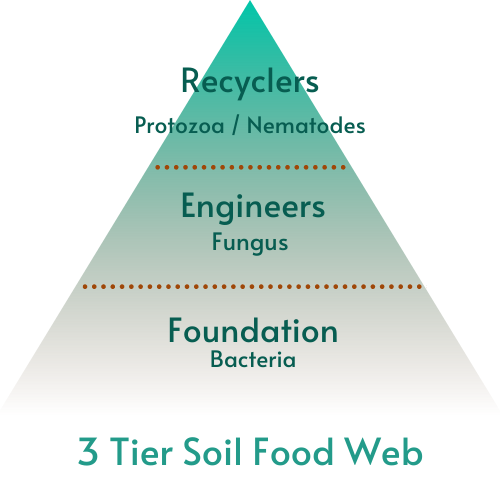
Korean Natural Farming
What is Korean Natural Farming?
Korean Natural Farming, KNF for short; takes advantage of indigenous microorganisms such as bacteria, fungi, nematodes and protozoa. This produces fertile soils that yield high output without the use of herbicides or pesticides. Cho Han-kyu, born in 1935 in Suwon, Korea, invented the Korean Natural Farming method. Cho studied farming methods in Japan and upon his return combined his newly acquired knowledge with the Korean traditional farming method and fermentation methods, used in such Korean food such as Kimchi, and gradually invented what we now call Korean Natural Farming. Its basis alongside many other natural farming methods is allowing the farm to create its own inputs, cutting the costs while exploring new possibilities of how to create healthfulness on farms.
The primordial insight of KNF is to create robust biological functions of all aspects of plant growth to increase productivity and nutrition. Supporting biology drastically reduces or eliminates the need for chemical interventions. For example, microbial metabolism produces complete proteins, while insects prefer incomplete proteins, when you create a healthier biology in the farms environment the plants will defend themselves against pests and disease. KNF centralizes the fact that healthy farms are productive farms, the farmers task is to support vitality, so biology functions for its own benefit.
This video is an excerpt from the documentary ‘In Search Of Balance’ you can find the full documentary in the education page.

IMO - Indigenous Microorganisms
KNF makes use of Indigenous Microorganisms to utilize the full potential of the ecosystem in which crops are grown. Benefits include increased rates of soil organic matter decomposition, increases in nutrient availability, improved plant yield, a reduction in pathogenic microorganisms and an increase in plant defenses. The idea is to use microorganisms native to the soil, and fermenting them to speed up the process of their proliferation. When you add these IMOs alongside or on the plants, health and yield is dramatically increased.
Beneficial microorganisms can significantly suppress fungal pathogen activity in crops. IMOs can reduce initial yield losses when transitioning from conventional to organic farming, by accelerating soil recovery. The use of IMOs has also shown soils recover after being depleted by the use of insecticides, fungicides and herbicides may have reduced soil microorganisms.
The process in many cases uses rice, places it in the soil where it ferments and collects all the micro organisms native to that ecosystem. Farmers will then take the micro organisms to their farms, where the magic happens.
IMOs can be made from or take form in; Seed, propagations, liquid, feed, manure and compost.
Why use IMOs?
In a fully functioning soil food web, variety truly is the spice of life. While some specific strains of fungi or bacteria are known to have benefits, Korean Natural Farming places an emphasis in strength in numbers. Maximum diversity of bacteria, fungi alongside recyclers of organic nutrients like protozoa and flagellates. Farmers using IMOs often combine this diversity with a concept of picking out groups of microbes from particular forests or wildlife areas that share characteristics with the farming environment, which leave you with an tremendously robust and authentic microbial culture.
Benefits of A Rich Diverse Soil Bacteria
They stabilize and store Nitrogen, Potassium and Phosphorus in the soil
Bacteria act as aggregates in the soil creating soil texture and aeration
Bacteria convert simple sugars into complex life forming substances required by more complex life forms
Plants interact with micro organisms, by secreting sugary exudates to naturally alter micro organism populations

Fantastic Fungi
Fungi, singular fungus are the most important group of microbes to a conscious farmer. Fungi create electric, water, and air pathways throughout the soil thereby connecting all plants to each other. They have exhibited ability to aid diseased plants, alerting the plants around sickly plants and allowing transfer of nutrients from healthy plants to the unhealthy. Every plant has beneficial fungi within the plant enabling soil fungi to join plant roots to extend millions of kilometers.
Fungi, like bacteria act as soil aggregates forming clumps; This allows for movement and the management of larger beneficial soil life and structure to take root. Farmers working with natural farming practices such as Korean Natural Farming methods recognize that overgrowths of particular fungi in the farming environment is a symptom of a deeper problem. Often spraying fungicides alongside other pesticides harms the delicate balance, and can result in fungicide resistance.
Notable Nematodes
You may have never heard of Nematodes, but they sure do know you; For each person on this planet there are 57 Billion Nematodes and they are vital to soil health. Nematodes deposit very rich plant available food by digesting bacteria and releasing nitrogen, potassium and phosphorus into the soil. Nematodes will often populate near soil roots and feed on overabundant bacteria, the nitrogen, potassium and phosphorus they excrete from digesting bacteria is close to plant roots, and aerates the soil for root hairs to follow, allowing plants to form deeper roots. Korean Natural Farming’s emphasis on working with and listening to the environment also encapsulates Nematodes, as an important factor in the health of a farms environment.
Using IMOs and other ferments such as fish or compost ferments, acts as a communicator to adjust the plants growing environment to better foster healthy Nematode balance within the soil.



